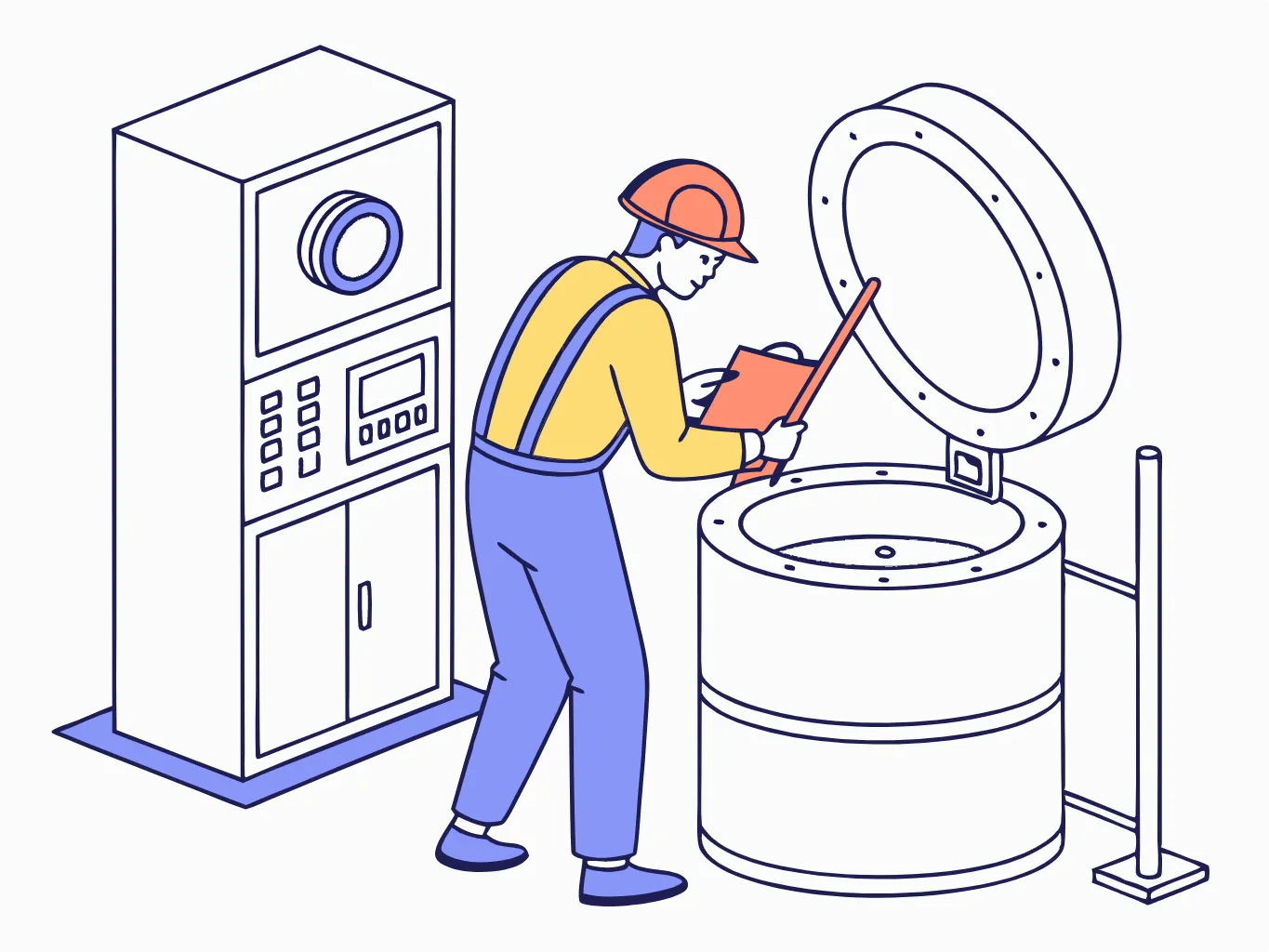Centrifugalne sušare ključni su u operacijama recikliranja plastike, pružajući učinkovitu metodu za uklanjanje vlage iz plastičnih materijala. Kako bi vam ovi strojevi dobro služili tijekom vremena, evo nekoliko praktičnih savjeta za održavanje i njegu:
Regular Cleaning
- Why: Accumulated debris like plastic particles, dust, and other contaminants can reduce the efficiency of your dryer and cause wear.
- How to: Clean the dryer after each use by removing any residual plastic flakes or dust. Use compressed air or a brush to clear out the screen or perforated areas where water exits. For more thorough cleaning, disassemble the parts that are easily accessible and clean them with a mild detergent, ensuring they dry completely before reassembly. This practice helps prevent blockages and maintains the machine’s performance.
Check and Replace Wear Parts
- Why: Components like blades, screens, and seals experience wear over time, which can lead to inefficiencies or breakdowns.
- How to: Regularly inspect these parts for signs of wear or damage. Replace blades if they are chipped or dull, as they are crucial for effective moisture removal. Screens should be checked for any tears or clogging. Seals need to be intact to maintain efficiency; replace them if they show signs of leakage or degradation. Keeping spare parts on hand can minimize downtime.
Podmazivanje
- Why: Proper lubrication reduces friction, which extends the life of moving parts and reduces energy consumption.
- How to: Follow the manufacturer’s guidelines for lubrication schedules. Typically, bearings and gears require regular oiling or greasing. Use the recommended type of lubricant to avoid attracting dust or damaging the components. Over-lubrication can be as harmful as under-lubrication, so apply just enough to ensure smooth operation.
Balance and Vibration Monitoring
- Why: Imbalance in the rotor can lead to excessive vibration, which stresses the machine’s structure and can cause premature failure.
- How to: Use vibration analysis tools or sensors to monitor the machine’s operation. If you notice unusual vibrations, stop the machine and check for imbalance or loose parts. Balancing the rotor might involve redistributing or replacing the blades. For professional insight, consider [Vibration Research on Centrifugal Loop Dryer Machines](insert internal link to related content on vibration research), where we discuss how to manage and interpret vibration data for optimal machine health.
Operational Practices
- Why: Overloading or incorrect feeding can strain the machine, leading to mechanical issues.
- How to: Always adhere to the manufacturer’s load specifications. Overloading can damage the motor or cause the machine to work inefficiently. Ensure materials are fed evenly to prevent one-sided wear. For tips on managing the plastic recycling process, including optimal feeding techniques, check out our guide on [Efficient Plastic Film Washing Lines](insert internal link to related content on film washing).
Routine Inspections
- Why: Early detection of issues can prevent major repairs.
- How to: Schedule regular inspections of all mechanical and electrical components. Look for signs of overheating, unusual noises, or any part showing accelerated wear. This should include checking electrical connections for corrosion or looseness, which could lead to malfunctions.
Training and Safety
- Why: Well-trained operators can spot issues before they become problems and operate the machine more safely.
- How to: Ensure all personnel using the centrifugal dryer are trained on its operation, maintenance, and safety procedures. Regular training updates can keep the team informed about best practices and new maintenance techniques.
By following these maintenance practices, you can significantly extend the life of your centrifugal dryer, ensuring it remains a reliable part of your plastic recycling process. Remember, a well-maintained machine not only lasts longer but also operates more efficiently, reducing operational costs and downtime.



